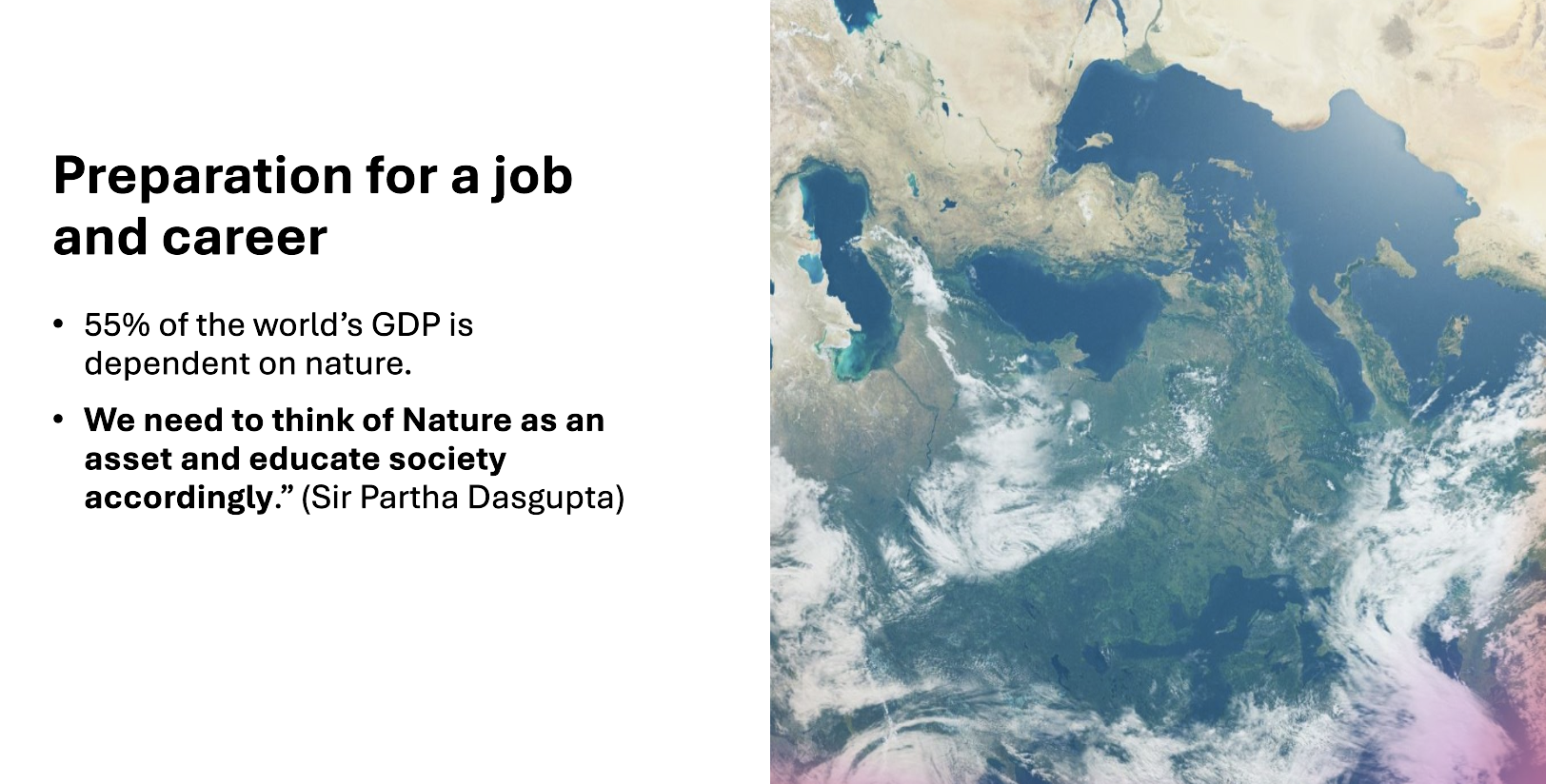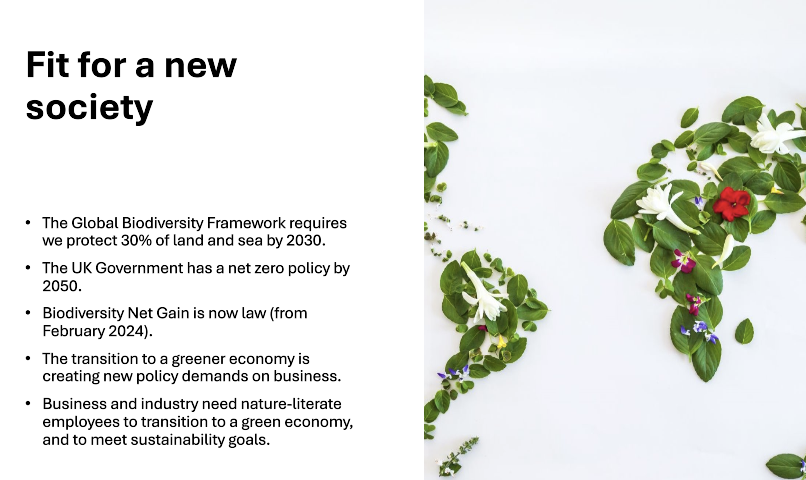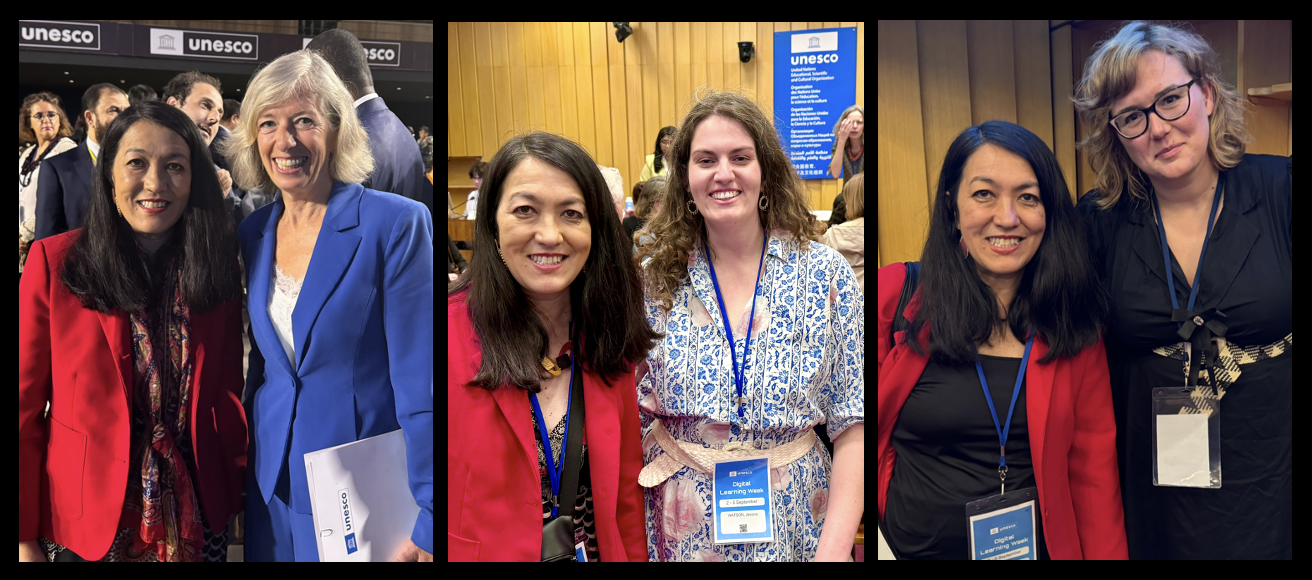Westminster Education Forum: Next Steps for Climate Change and Sustainability Education in England
Why is understanding and preserving the world are not valued by all humans? Mary Cowell
The recent conference on climate change and sustainability education in England provided a critical platform for policymakers, educators, and stakeholders to discuss the future of climate education.


Key issues included the rollout of the Department for Education’s (DfE) Sustainability and Climate Change Strategy, which aims for all educational institutions to have a designated sustainability lead and Climate Action Plans by 2025.
Highlights:
- Discussions on the Government’s new Curriculum and Assessment Review and its impact on embedding climate education in the curriculum.
- The Climate Ambassadors Scheme, expanding to support students and teachers in leading climate-related initiatives.
- Introduction of the Natural History GCSE by September 2025, giving students in-depth knowledge about environmental issues and the natural world.
- Rollout of the Climate Action Planning Sector Engagement and Support Service (SESS), a DfE initiative to provide free, cross-disciplinary support to schools.
Key speakers included:
- Professor Andrew Charlton-Perez, Co-Lead of the Climate Ambassador Scheme, who discussed its progress.
- Mary Colwell, Conservationist and Director of Curlew Action, on the ambitions for the new GCSE.
- Lauren Hyams, Head of Learning at the Natural History Museum, emphasized collaboration across educational settings to empower students in climate action.
This event signals important steps forward in integrating climate change and sustainability into England’s education system.
More details about the programme:
This policy conference will cover critical themes for the rollout of climate change and sustainability education in England, featuring a range of expert speakers from academia, policy, and industry. Key topics include:
- Climate Ambassador Scheme: Professor Andrew Charlton-Perez (University of Reading) will discuss progress and next steps.
- Sustainability Education in Schools: Ann Finlayson (SEEd), Professor Sylvia Knight (Royal Meteorological Society), and Kelly Smith (The Royal Society) will examine curriculum design, practical challenges, and collaboration.
- Natural History GCSE: Mary Colwell (Curlew Action) will outline the aims and ambitions of the upcoming GCSE.
- Engaging Learners and Teachers: Dr. Cormac Lawler (Manchester Metropolitan University), Naheeda Maharasingam (Rathfern Primary School), and Dr. Deborah Outhwaite (London School of Economics) will share strategies for implementing Climate Action Plans and promoting sustainability in education.
- Collaboration and Empowerment: Lauren Hyams (Natural History Museum) will explore how to empower young people to take climate action.
- Pathways to Green Jobs: Martin Baxter (IEMA), Louise Wolsey (London & South East Education Group), and Dr. Paul Warwick (University of Plymouth) will discuss the green jobs market and career opportunities for students.
With contributions from Baroness Bennett of Manor Castle and Lord Redesdale, the event promises to shape the future of climate change education in England.


